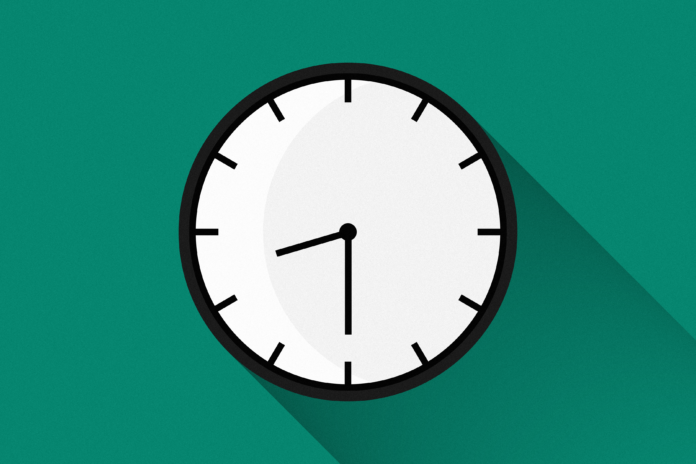Bill was originally vetoed by Governor Jerry Brown in 2018
California lawmakers are reintroducing Senate Bill 328, a bill that pushes back school start times. The revised bill proposes that middle schools start no earlier than 8 a.m. and high schools start no earlier than 8:30 a.m. The bill was first vetoed by former Governor Jerry Brown in September 2018.
There are more than three million public middle and high school students in California. The average school start time in California is 8:07 a.m. Davis Senior High school, which starts school at 8:15 a.m., would have to change its bell schedules if this bill were to pass.
SB 328 was first introduced by California state Assemblyman Anthony Portantino in February 2017. The original bill proposed to push back school start times of all middle and high schools to 8:30 a.m., except in rural school districts. While the bill was passed in both the California State Assembly and State Senate on Aug. 31, 2018, it was vetoed by Brown in September 2018.
Brown stated that school start times were an issue for each individual school and community to deal with.
“This is a one-size-fits-all approach that is opposed by teachers and school boards,” Brown said in the governor’s Veto Message. “Several schools have already moved to later start times. Others prefer beginning the school day earlier. These are the types of decisions best handled in the local community.”
The bill, however, is now being reintroduced to the state government. Portantino and other advocates for the bill are hoping the recently elected Gov. Gavin Newsom will think differently.
The new bill has two major modifications. In addition to changing the start times of public middle and high schools, the new bill clarifies that “schoolday” be defined “by the school district or charter school for purposes of calculating average daily attendance in order to compute any apportionments of state funding.”
Portantino stated that the bill was reintroduced because later school times will improve the health and education of teenagers.
“As I stated at the end of the last legislative year, I will continue to fight for to change school start time because it is a science based and results driven policy that will save lives and improve academic performance,” Portantino said in a press release. “The facts and results are unequivocal and clear; our teens are healthier and perform better when school starts later. I strongly believe test scores will go up and suicidal thoughts will go down. It’s time to embrace this public health issue and put our children’s wellbeing first.”
The bill is supported by both the American Academy of Pediatrics and Centers for Disease Control. According to Portantino’s press release, later start times have resulted in more on-time attendance, higher grades and increased graduation rates. Earlier start times, on the other hand, can create a public health risk.
“Short-term effects of sleep loss on adolescents include the following: irritability, inability to pay attention in class, falling asleep in class and decreased athletic performance,” said Ian Campbell, a researcher for the UC Davis Sleep Lab. “The most severe effect is impaired driving ability that could lead to injury or death from a car accident. Long-term effects are less clear.”
Additionally, school districts would receive more funding, as some school funds are tied to school attendance rates.
“Every year we discuss — as parents, educators and legislators — the best practices for our children and their education,” Portantino said. “The data on this measure is clear and that is starting the school day at a later time improves the quality of education, health and welfare of our children. So let’s do it.”
Despite the benefits of prolonged sleep for teenagers, Campbell does not support the bill. Additionally, the California Teachers Association — California’s largest teachers union — and many school districts across the state oppose the bill.
According to Campbell, there are three reasons why he does not support the bill. Firstly, the scientific research behind teenagers’ shifting circadian rhythms is not yet sufficient.
“[First], the bill is based strongly on the idea that circadian rhythms change in the teenage years, and that prevents teenagers from being able to go to sleep at a reasonable hour […] and we don’t think that the scientific evidence for that is strong enough yet,” Campbell said. “The next reason is that some school districts that have made this change have found out that sleep duration doesn’t increase. All that happens is, yes, kids wake up later, but they go to bed later.”
According to a study published by a district that shifted school start times in Upstate New York — a year after the district shifted start times — the students started going to bed 30 minutes later. Many of them did not use the extra 30 minutes for sleep.
Finally, Campbell, like Brown, does not think it is appropriate for a state to force schools to change start times.
“The third point is that it’s not really appropriate for a state bill that changes the start time for all school districts,” Campbell said. “It may be appropriate for some school districts — the state ought to encourage them to make this change and collect data on this — but for other school districts, it might not be appropriate.”
More information about the new bill can be found on the California Legislative Information website.
Written by: Hannan Waliullah — city@theaggie.org





I’d much rather consider results from studies including tens of thousands of teenaged students rather than a measly sample size of 67 children, not all of whom have hit puberty, when making a health decision for the state. All the substantive evidence supports a start time of or after 8:30 am. Opinions and flawed ‘studies’ do not allow for good law.